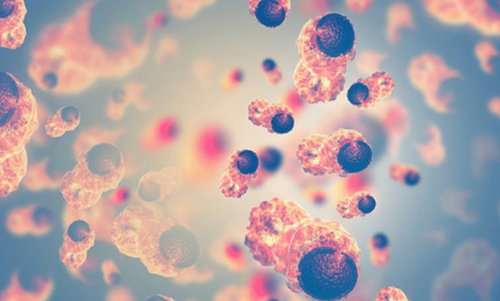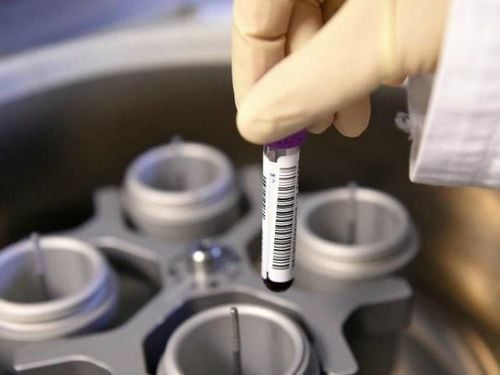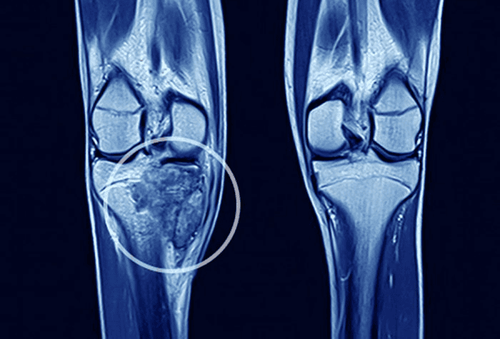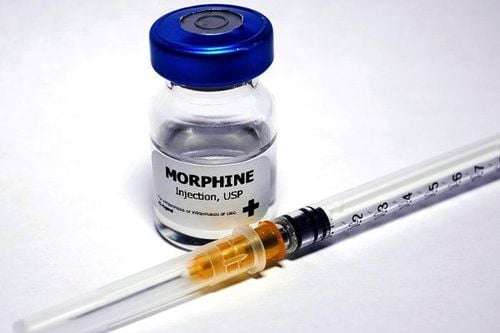This is an automatically translated article.
In its early stages, lung cancer may not produce any noticeable symptoms, and many people are not diagnosed early until the disease is more advanced.1. Signs that help early recognition of lung cancer
1.1 Persistent cough
A cough that is associated with a cold or a respiratory infection should go away in a week or two, but if it persists, it could be a symptom of lung cancer. So be wary of lingering coughs. If the patient has a persistent cough, do not be subjective, but see a doctor to check the lungs and possibly X-rays or other tests to find out the cause of this condition.1.2. Change in cough
Watch for any changes in your chronic cough, especially if you're a smoker. If the coughs are more frequent, the cough lasts longer or the sound is hoarse, coughing up blood or an unusual amount of mucus, you should see your doctor as these could be symptoms of lung cancer.
1.3 Breathing changes
Shortness of breath or becoming easy to breathe can also be symptoms of lung cancer. If lung cancer blocks or narrows the airways or if fluid from a lung tumor builds up in the chest, it can lead to changes in breathing.
When you feel short of breath, especially after climbing stairs or performing tasks that were once easy, pay close attention
1.4 Pain in the chest area

Ung thư phổi có thể gây ra những cơn đau ở ngực
Lung cancer can cause pain in the chest, shoulders or back. If you notice any type of chest pain, whether it's dull, constant, or intermittent, you should seek medical attention.
The patient should notice whether the pain is limited to a specific area or occurs throughout his or her entire chest. When lung cancer causes chest pain, the discomfort will come from enlarged or metastasized lymph nodes into the chest wall, the lining around the lungs, called the pleura, or ribs.
1.5 Wheezing
The lungs will make a wheezing sound when we breathe due to blocked or inflamed airways. Wheezing can be associated with many causes and some of them are benign and easily treatable.
However, wheezing is also a symptom of lung cancer, don't assume that wheezing is just caused by asthma or common allergies.
1.6. Raucous
If you notice a change in your voice, or if others say your voice sounds deeper, more hoarse, see your doctor.
Hoarseness can be caused by a simple cold, but this symptom will indicate a more serious condition when it persists for more than two weeks. Hoarseness associated with lung cancer occurs when the tumor affects the nerve that controls the larynx, or windpipe.
1.7 Unusual weight loss

Giảm sút cân do các tế bào ung thư sử dụng năng lượng
Unusual weight loss of about 4-5 kg or more may be related to lung cancer or another type of cancer. With cancer, weight loss can be due to the cancer cells using energy or it can also be the result of a change in the way the body uses energy from food.
1.8 Bone pain
When lung cancer spreads to the bones it can create pain in the back or in other areas of the body. This pain can be worse at night while lying down and it is difficult to distinguish between bone and muscle pain. Bone pain is often worse at night and with exercise.
Also, lung cancer is sometimes associated with shoulder, arm or neck pain so pay attention to aches and pains and talk to your doctor about this condition.
1.9 Headaches
Headache is a sign that lung cancer has spread to the brain. However, not all headaches are related to brain metastases.
In some cases, a lung tumor can put pressure on the superior vena cava, the large vein that moves blood from the upper body to the heart. This pressure can cause headaches, or in more severe cases, migraines.
2. Is it possible to identify lung cancer through the early signs?
Lung cancer symptoms are not specific, very diverse, difficult to detect, easily confused with other diseases, especially in the early stages (the ideal stage for treatment). Only when the disease has grown too much, the cancer has metastasized to other parts, the patient realizes the abnormalities. But at this time, the treatment will no longer be effective and most of it will just improve the condition of the disease, increase the quality of life and the patient's life time.
Therefore, periodic health check-ups and cancer screening are still methods recommended by doctors to detect lung cancer early. Most cases of lung cancer treatment are discovered by chance, due to cancer screening or treatment or diagnosis of related diseases. Each person needs to go for regular cancer screening twice a year, for young people, it should be maintained once a year. During screening, all respiratory and lung abnormalities are carefully examined by a respiratory specialist and given treatment.

Sàng lọc ung thư phổi tại bệnh viện Đa khoa Quốc tế Vinmec
Currently, at the Vinmec International General Hospital system, the package: "Lung cancer screening" is being applied to give customers the most accurate results with many advantages:
A team of highly qualified doctors , experienced. Comprehensive professional cooperation with domestic and international hospitals: Singapore, Japan, USA, .. Comprehensive treatment and care, multi-specialty coordination towards individualizing each patient. Having a full range of specialized facilities for diagnosis and staging before treatment: Endoscopy, CT scan, PET-CT scan, MRI, histopathological diagnosis, gene-cell testing, .. There are a full range of mainstream cancer treatment methods: surgery, radiation therapy, chemotherapy, stem cell transplant...
Please dial HOTLINE for more information or register for an appointment HERE. Download MyVinmec app to make appointments faster and to manage your bookings easily.













